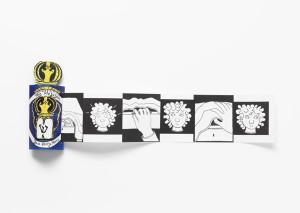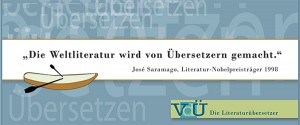Search Results for
"question"
– a Youth Spent in Iran and Vienna
This week, from 21 to 27 October 2013, the Academy of the Jewish Museum Berlin, in cooperation with Kulturkind e.V., will host readings, workshops, and an open day for the public with the theme “Multifaceted: a book week on diversity in children’s and youth literature.” Employees of various departments have been vigorously reading, discussing, and preparing a selection of books for the occasion. Some of these books have already been introduced here over the course of the last months.

In her autobiographical graphic novel Persepolis, the author Marjane Satrapi, born in 1969, portrays the history of her native Iran as well as that of her own family. The two are closely interwoven. Marjane grew up in Iran during a time of upheaval: when she was ten, the Shah was overthrown and people danced in the streets. But the feeling of liberation was brief. Soon the new religious regime began to enforce its ideas of morality and decency. It forbade alcohol and Western music, insisted that even non-religious women wear the veil, and put opponents into prison or had them assassinated. Marjane’s open-minded, liberal parents are understanding and give her space and freedom. But she finds it difficult to adjust to the rules outside their home. She rebels against the dress codes, goes to parties, and argues with her teachers. (more…)
Since the end of August visitors to the permanent exhibition have been able to purchase small artworks from an ‘art vending machine.’ The artworks have been created by Jewish artists living and working in Berlin.

Paper mezuzah with pull-out comic strip by Zara Verity Morris
© Jewish Museum Berlin, photo: Jens Ziehe
Today we present one of the artists: Zara Verity Morris from London. Morris is currently studying for her Masters degree at the “Institute for Art in Context,” at the Berlin University of the Arts. For the art vending machine she has created a comic strip called “The Mezuzah” on a pull-out paper scroll. (A mezuzah is a small case, which is attached to the door posts of Jewish households. Inside is a handwritten parchment scroll with the Hebrew prayer “Shema Yisrael” (“Hear O Israel”).
Christiane Bauer: Zara, can you for starters briefly explain to me why you produced this particular object for the art vending machine?
Zara Verity Morris: I found it an interesting challenge to play with the limited space of the art vending machine, and wanted to make something that could be unfolded once it has been taken out. The long paper roll was inspired by the formal connection between the Torah and a mezuzah.
When I was a young child, I found a few mezuzot in a drawer in varying conditions. A few had open cases. I was surprised to discover a paper scroll lying inside one of them with Hebrew writing on it. I was excited, and thought it was like a toy Torah. As a child, one of my favourite parts of being at a service at synagogue was the heavy Torah being ‘undressed’ by two people; getting its velvet cover and decorations taken off to reveal the plain paper scroll underneath. I decided to turn these childhood memories into a comic.
How does “The Mezuzah” fit into your previous work? (more…)
On Behind-the-scenes Labor in the Cultural Economy

“Translators create universal literature.” José Saramago, Nobel Prize Winner for Literature 1998
© VdÜ (Germany’s Union of Literary Translators), design: Christian Hoffmann
Today is Giornata mondiale della traduzione, Międzynarodowy Dzień Tłumacza, Journée mondiale de la traduction, Uluslararası Çeviri Günü or Día Internacional de la Traducción—which is to say, International Translation Day, an occasion established in 1991 by the Fédération Internationale des Traducteurs (FIT: International Federation of Translators) in order to raise public awareness of the cultural impact of the wordsmith’s trade. 30 September is the anniversary of the death in 420 CE of Hieronymus, who translated the Hebrew Bible into Latin. Since ancient times translation has influenced the target language in question, and in the globally networked world of today it is our constant companion. Germany’s Union of Literary Translators (VdÜ) puts it in a nutshell: “Wherever words have been spoken, written, read, or even sung, translators have had a finger in the pie, and indeed they still do; and it is thanks to them that the whole world is at home in its own language.” (more…)


